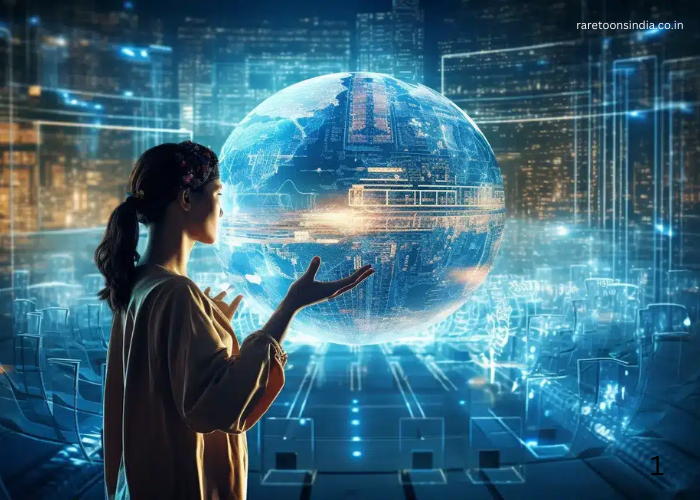In the 21st century, technology is not just a tool; it is a transformative force reshaping every aspect of human life. From addressing climate change to improving healthcare and fostering global communication, advanced technologies are paving the way for a more equitable, sustainable, and connected world.
Revolutionizing Healthcare
The healthcare industry has witnessed significant advancements through technologies like artificial intelligence (AI), genomics, and telemedicine. AI-powered diagnostics can detect diseases such as cancer at early stages, significantly improving survival rates. Precision medicine, guided by genomic data, allows for treatments tailored to individual patients, enhancing efficacy while minimizing side effects.
Telemedicine has broken down geographical barriers, making quality healthcare accessible even in remote areas. During the COVID-19 pandemic, virtual consultations surged, proving that digital solutions can save lives while reducing the burden on physical healthcare facilities.
Combating Climate Change
Climate change is one of the most pressing challenges of our time, and advanced technologies are crucial in combating it. Renewable energy technologies, such as solar panels, wind turbines, and energy storage systems, are becoming more efficient and affordable. Innovations in carbon capture and storage (CCS) are helping industries reduce their carbon footprint.
Smart cities, powered by the Internet of Things (IoT), optimize energy use, reduce waste, and improve urban living conditions. For instance, smart grids manage electricity demand in real time, reducing energy wastage and promoting renewable energy use.
Enhancing Education
Education technology (EdTech) is democratizing access to knowledge. Platforms like massive open online courses (MOOCs), virtual reality (VR) classrooms, and AI-driven personalized learning tools are transforming the educational landscape. These technologies enable lifelong learning, skill development, and the dissemination of knowledge across socioeconomic boundaries.
VR and augmented reality (AR) create immersive learning experiences, making complex subjects like science and history more engaging and understandable. AI tutors provide individualized feedback, ensuring that students progress at their own pace.
Promoting Social Equity
Blockchain technology has the potential to address issues of transparency and trust, particularly in financial systems. Cryptocurrencies and decentralized finance (DeFi) are offering financial services to unbanked populations, fostering economic inclusion.
Additionally, AI and machine learning are being used to identify and mitigate bias in hiring processes, ensuring fair opportunities for individuals regardless of their background. Technologies that improve accessibility, such as screen readers and voice-controlled devices, empower people with disabilities to participate more fully in society.
Driving Global Connectivity
The proliferation of high-speed internet and satellite-based communication systems is bringing the world closer together. Technologies like 5G and Starlink are bridging the digital divide, enabling remote communities to access information, education, and economic opportunities.
These advancements also facilitate global collaboration. Scientists, educators, and policymakers can work together seamlessly, sharing data and ideas to tackle global challenges such as pandemics, climate change, and poverty.
Challenges and Ethical Considerations
While the potential of advanced technologies is immense, their deployment is not without challenges. Privacy concerns, cybersecurity threats, and ethical dilemmas must be addressed to ensure that these technologies are used responsibly.
For example, the widespread adoption of AI raises questions about data security and job displacement. Similarly, while blockchain can enhance transparency, it also poses regulatory challenges. Governments, industries, and civil societies must collaborate to establish frameworks that balance innovation with accountability.
Conclusion
Advanced technologies hold the promise of a better world, but their potential can only be realized through thoughtful implementation and inclusive policies. By harnessing these innovations, humanity can address its most pressing challenges, create new opportunities, and ensure a brighter future for all. The journey toward a better world is not just about developing new technologies but about using them wisely and equitably to uplift humanity.
